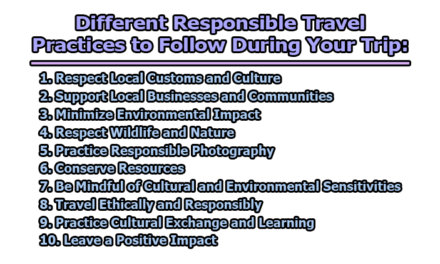An Overview of the Hospitality Industry:
The hospitality industry is a vast and multifaceted sector that revolves around providing services related to leisure, customer satisfaction, and creating memorable experiences. In this article, we will provide an overview of the hospitality industry including its various sectors, and its interconnectedness with the travel industry.
Defining the Hospitality Industry:
The hospitality industry encompasses a diverse range of businesses and services, all united by their common goal of providing leisure, pleasure, and exceptional experiences to guests and customers. This dynamic sector prioritizes the art of hospitality, focusing on delivering memorable moments rather than mere necessities. From hotels and restaurants to resorts, event venues, and cruise ships, the hospitality industry caters to travelers, tourists, and locals alike, offering accommodations, culinary delights, entertainment, and relaxation. Its essence lies in creating a welcoming and enjoyable environment, making it a vital and multifaceted sector in the world of service industries.
Sectors within the Hospitality Industry:
The hospitality industry is a multifaceted sector that encompasses a diverse range of businesses and services, each catering to different aspects of leisure, customer satisfaction, and creating memorable experiences. Within the hospitality industry, several distinct sectors play vital roles in meeting the needs and desires of travelers, tourists, locals, and those seeking leisure activities. Let’s delve into these sectors:
- Accommodation: The accommodation sector focuses on providing temporary lodgings for individuals, ranging from tourists to locals seeking a break from their routine. This sector includes various types of establishments, each offering a unique lodging experience:
- Hotels: Hotels are perhaps the most recognizable form of accommodation within the hospitality industry. They offer a wide range of services and amenities, including room service, housekeeping, dining facilities, and often have various room categories to cater to different budgets and preferences.
- Motels: Motels are typically designed to cater specifically to motorists. They are usually situated along highways or main roads and often provide free parking. Motels offer basic overnight accommodation with limited additional services.
- Bed & Breakfasts (B&Bs): B&Bs are small, often charming, establishments that offer overnight stays and breakfast in the morning. What sets them apart is that the owners typically live on the property, providing a more personalized experience for guests.
- Hostels: Hostels are communal accommodations where multiple guests share a dormitory-style room or private rooms with shared bathroom and kitchen facilities. Hostels are known for their budget-friendly pricing and are popular among backpackers and budget travelers.
- Resorts: Resorts offer a comprehensive experience by providing not only lodging but also a wide array of amenities and facilities on-site. These can include restaurants, bars, entertainment, spa services, and more. Resorts often cater to vacationers seeking an all-inclusive experience.
- Serviced Apartments: Serviced apartments are self-contained units available for short-term or long-term stays. They typically come fully furnished, complete with a kitchen, and may offer hotel-like services such as laundry and cleaning.
- Time Sharing: Time-sharing accommodation involves shared ownership or usage rights of a property. Owners are allocated specific times of the year when they can use the property, often associated with vacation homes or condominiums.
- Food & Drinks: The food and drinks sector within the hospitality industry combines the essential need for sustenance with the opportunity for leisure, socialization, and enjoyment. This sector offers a variety of dining experiences:
- Restaurants: Restaurants provide a diverse range of dining experiences, from fine dining establishments offering gourmet cuisine to fast-food restaurants offering quick, convenient meals. They cater to various tastes and preferences.
- Catering: Catering services extend beyond traditional restaurant settings. They provide food and drinks at various locations, including events, public spaces, stadiums, parks, and even on certain forms of public transport.
- Bars & Cafés: Bars and cafés offer patrons a more casual and social environment to enjoy beverages and light snacks. Cafés typically focus on coffee, tea, and pastries, while bars emphasize alcoholic and non-alcoholic drinks, often with additional entertainment options.
- Nightclubs: Nightclubs are dedicated to nighttime entertainment, offering music, dancing, and alcoholic beverages. They are known for their vibrant atmospheres and often cater to those looking for a lively nightlife experience.
- Tea & Coffee Shops: These establishments specialize in providing a wide range of tea and coffee varieties. While they often operate as individual rooms within larger buildings, such as hotels, they also offer products for takeout, such as coffee beans and tea bags.
- Travel and Tourism: The travel and tourism sector complements the hospitality industry by providing travel-related services, ensuring that individuals have smooth and enjoyable travel experiences:
- Travel Agents: Travel agents serve as intermediaries between customers and travel suppliers. They assist in booking travel products such as flights, accommodations, tours, and transportation, offering guidance and expertise.
- Tour Operators: Tour operators create packaged travel experiences by combining various travel components. These packages often include transportation, accommodations, tours, activities, and experiences.
- Online Travel Agencies (OTAs): OTAs operate primarily on digital platforms, offering a wide range of travel products and services. They provide users with self-service options to search and book travel arrangements.
- Cruises: Cruises offer a unique form of leisure travel, with passengers enjoying voyages on ships designed for both transportation and recreation. Cruises often include stops at various destinations and provide lodging, dining, entertainment, and more on board.
- Car Rental: Car rental services cater to travelers who require short-term access to vehicles. These services are commonly used by tourists and individuals traveling to locations where public transportation may be limited.
- Casinos: Casinos are entertainment establishments that provide gambling opportunities, often combined with dining, lodging, and live performances. They attract both local and tourist patrons.
These sectors within the hospitality industry collectively contribute to the overall experience of travelers and individuals seeking leisure and relaxation. Whether it’s finding a comfortable place to stay, enjoying delicious meals and drinks, or planning and booking travel experiences, the hospitality industry plays a pivotal role in enhancing the quality of life and creating lasting memories for people around the world.
The Latest Hospitality Trends:
To remain competitive, businesses within the hospitality industry must stay updated on the latest trends. Here are some areas where trends are emerging:
1. Hospitality Technology Trends:
a) Contactless Check-In and Check-Out: The COVID-19 pandemic accelerated the adoption of contactless technologies. Many hotels now offer mobile check-in and check-out options, reducing physical contact and enhancing convenience for guests.
b) Keyless Entry: Keyless entry systems, often integrated with mobile apps, allow guests to access their rooms using their smartphones, eliminating the need for physical keys or key cards.
c) In-Room Technology: Smart rooms equipped with voice-activated assistants, tablets, and personalized controls for lighting, temperature, and entertainment are becoming increasingly popular.
d) Robotic Assistance: Some hotels have started using robots for tasks such as room service deliveries, cleaning, and concierge services, providing efficiency and minimizing human contact.
e) Virtual Concierge: Virtual concierge services powered by AI chatbots or voice assistants offer guests instant assistance, recommendations, and information 24/7.
f) Enhanced Cybersecurity: With the increasing reliance on technology, cybersecurity has become a top priority for hotels to protect guest data and maintain their trust.
2. Hospitality Marketing Trends:
a) Personalization: Tailoring marketing messages and offers to individual preferences and behaviors is a key trend. Data analytics and AI help hotels create personalized experiences for guests.
b) User-Generated Content: Encouraging guests to share their experiences on social media and review platforms is a powerful marketing strategy. User-generated content builds trust and authenticity.
c) Sustainability Marketing: Guests are increasingly concerned about sustainability. Hotels that adopt eco-friendly practices and communicate their efforts effectively can attract environmentally conscious travelers.
d) Influencer Partnerships: Collaborating with social media influencers and travel bloggers can help hotels reach a broader audience and showcase their properties in a more relatable way.
e) Virtual Tours and 360-Degree Imagery: Providing virtual tours and immersive imagery on websites and booking platforms allows potential guests to explore hotel facilities before booking.
3. Revenue Management:
a) Dynamic Pricing: Utilizing dynamic pricing strategies, hotels can adjust room rates in real-time based on demand, special events, and other factors, optimizing revenue.
b) Ancillary Revenue: Hotels are increasingly looking for opportunities to generate revenue beyond room bookings, such as offering add-on services, experiences, and upselling amenities.
c) Forecasting and Data Analytics: Advanced data analytics tools help hotels make more accurate revenue predictions and strategize accordingly.
4. Sustainability Initiatives:
a) Green Certifications: Hotels are seeking green certifications and implementing eco-friendly practices to reduce their environmental impact, such as using renewable energy, reducing waste, and conserving water.
b) Local Sourcing: Emphasizing locally sourced and sustainable food and beverage options not only reduces the carbon footprint but also supports local communities.
c) Waste Reduction: Hotels are adopting initiatives to minimize single-use plastics, recycle materials, and reduce food waste.
5. Health and Safety Measures:
a) Enhanced Cleaning Protocols: The COVID-19 pandemic prompted hotels to implement rigorous cleaning and sanitization practices to ensure guest safety.
b) Health Screening: Some hotels are introducing health screening measures, such as temperature checks and health questionnaires, to identify potential risks among guests and staff.
c) Flexible Booking Policies: Providing flexible cancellation and rebooking options allows guests to plan with confidence amid uncertainty.
6. Alternative Accommodations:
a) Vacation Rentals: The popularity of vacation rental platforms has grown significantly. Some hotels are diversifying their offerings by incorporating vacation rental properties into their portfolios.
b) Glamping: Glamorous camping, or “glamping,” has gained popularity, with hotels and resorts offering unique outdoor accommodations with modern amenities.
c) Co-Living Spaces: Hotels are exploring co-living concepts, providing communal living spaces with private bedrooms and shared amenities, appealing to long-term travelers and digital nomads.
7. Wellness and Fitness:
a) Wellness Amenities: Hotels are investing in wellness amenities, including spa facilities, fitness centers, and mindfulness programs, catering to health-conscious travelers.
b) Outdoor Experiences: Properties with access to nature and outdoor activities are in high demand, offering guests opportunities for relaxation and physical well-being.
These latest hospitality trends reflect the industry’s commitment to meeting the evolving needs of travelers while embracing technology, sustainability, and health and safety. By staying attuned to these trends, businesses in the hospitality sector can remain competitive and provide exceptional guest experiences in an ever-changing landscape.
Hospitality Management:
Hospitality managers play a pivotal role in ensuring excellent customer service and creating high-quality environments within the industry.
- The Significance of Hospitality Management: Hospitality management is the backbone of the hospitality industry, which revolves around creating memorable experiences for guests. It focuses on delivering top-notch services, ensuring guest satisfaction, and maintaining the overall reputation of the establishment. Here’s why hospitality management is so vital:
- Guest Satisfaction: Hospitality managers are responsible for ensuring that guests have a positive and memorable experience. Happy customers are more likely to return and recommend the establishment to others.
- Operational Efficiency: Effective management ensures smooth day-to-day operations, from managing staff and inventory to optimizing resources.
- Financial Success: Hospitality managers must maintain profitability while providing quality services. Effective cost control and revenue management are key components of financial success.
- Reputation Management: A good reputation is vital in the hospitality industry. Managers play a pivotal role in managing reviews, feedback, and public perception.
- Compliance: Hospitality establishments must adhere to various regulations and standards, including health and safety, labor laws, and quality standards. Managers ensure compliance to avoid legal issues.
- Core Responsibilities of Hospitality Managers: Hospitality managers oversee a wide range of responsibilities to ensure the smooth functioning of their establishments. These responsibilities may vary depending on the type and size of the business but often include:
- Staff Management: Hiring, training, scheduling, and supervising staff to provide excellent customer service.
- Customer Service: Ensuring guests are satisfied by addressing their needs, resolving complaints, and providing personalized experiences.
- Financial Management: Managing budgets, controlling costs, setting pricing strategies, and maximizing revenue through effective sales and marketing efforts.
- Operational Oversight: Supervising day-to-day operations, including housekeeping, maintenance, food preparation, and guest services.
- Inventory and Supply Chain Management: Monitoring and controlling inventory levels, ordering supplies, and managing vendor relationships.
- Marketing and Promotion: Developing marketing strategies, advertising campaigns, and promotional activities to attract and retain customers.
- Safety and Compliance: Ensuring the safety of guests and staff by implementing health and safety protocols and complying with industry regulations.
- Quality Assurance: Maintaining and improving the quality of services and facilities to meet or exceed guest expectations.
- Key Skills for Hospitality Managers: Successful hospitality managers possess a diverse set of skills and qualities that enable them to excel in their roles. Here are some key skills and attributes:
- Communication Skills: Effective communication with guests, staff, and stakeholders is crucial for resolving issues and ensuring a positive atmosphere.
- Leadership: Managers must lead by example, motivate staff, and make critical decisions.
- Problem-Solving: Quick thinking and the ability to address unexpected challenges are essential in the fast-paced hospitality industry.
- Customer Focus: A genuine desire to create memorable experiences for guests is at the core of hospitality management.
- Financial Acumen: Managers need a good understanding of budgeting, financial analysis, and revenue management.
- Adaptability: The ability to adapt to changing circumstances and evolving guest preferences is vital.
- Attention to Detail: Precision is crucial in maintaining quality and ensuring a seamless guest experience.
- Cultural Sensitivity: In diverse settings, understanding and respecting different cultures is essential.
- Career Opportunities in Hospitality Management: Hospitality management offers a wide range of career opportunities, from entry-level positions to top executive roles. Here are some common career paths within the field:
- Hotel Manager: Responsible for the overall operation of a hotel, including guest services, staff management, and financial performance.
- Restaurant Manager: Oversee the daily operations of restaurants, ensuring excellent customer service, food quality, and profitability.
- Event Manager: Plan and execute events, conferences, and meetings, coordinating all logistics and services.
- Resort Manager: Manage all aspects of resort operations, from accommodations and dining to leisure activities and guest services.
- Catering Manager: Coordinate catering services for events, overseeing food preparation, service, and client relations.
- Front Office Manager: Supervise front desk staff, reservations, and guest check-in/check-out processes.
- Spa Manager: Manage spa facilities, services, and staff, ensuring a relaxing and rejuvenating experience for guests.
- Travel and Tourism Manager: Plan and promote travel packages, tours, and experiences, catering to tourists and travelers.
How the Coronavirus Epidemic has Affected the Hospitality Industry:
The global COVID-19 pandemic has had a profound and unprecedented impact on the hospitality industry, reshaping the landscape of travel, tourism, and leisure services in ways that were previously unimaginable. As the virus spread around the world, countries implemented strict measures to contain it, including travel restrictions, lockdowns, and social distancing guidelines. Here’s an in-brief look at how the coronavirus epidemic has affected the hospitality industry:
- Drastic Decline in Demand: One of the most immediate and severe impacts of the pandemic was a sharp decline in demand for hospitality services. Travel restrictions, quarantine requirements, and fear of the virus led to a significant drop in bookings for hotels, airlines, cruise lines, and other travel-related businesses. Many hotels reported occupancy rates plummeting to unprecedented lows, and airlines faced massive cancellations.
- Closure of Establishments: To curb the spread of the virus, many hotels, restaurants, bars, and entertainment venues were forced to temporarily close their doors. This resulted in widespread job losses and financial hardships for both businesses and employees.
- Loss of Revenue: The hospitality industry faced staggering losses in revenue due to reduced occupancy, canceled events, and the closure of dining establishments. Many businesses experienced cash flow challenges and struggled to cover operating costs.
- Layoffs and Furloughs: With the decline in business, many hospitality companies had to lay off or furlough a significant portion of their workforce. This resulted in widespread unemployment and financial insecurity for hospitality employees.
- Increased Health and Safety Measures: Hospitality businesses were required to implement enhanced health and safety measures to protect guests and staff. This included stringent cleaning protocols, social distancing guidelines, and the use of personal protective equipment (PPE), all of which added to operating costs.
- Shift Towards Contactless Services: To minimize physical contact, many hotels and restaurants implemented contactless check-in/check-out procedures, digital menus, and mobile payments. Technology played a crucial role in adapting to the new normal.
- Impact on Business Travel: Business travel, a significant revenue source for hotels and airlines, saw a dramatic decline as companies restricted non-essential travel and adopted remote work arrangements.
- Crisis in the Event and Conference Industry: The event and conference industry experienced a crisis as large gatherings were canceled or postponed. Event venues, planners, and suppliers faced immense challenges and financial losses.
- Evolving Guest Expectations: The pandemic reshaped guest expectations, with a heightened focus on cleanliness, safety, and flexibility. Guests now prioritize hotels and venues that demonstrate robust health and safety measures.
- Resilience and Adaptation: Despite the challenges, some businesses in the hospitality industry demonstrated resilience by pivoting their operations. For example, some hotels offered rooms for quarantine purposes or as temporary housing for healthcare workers. Restaurants adapted by offering takeout and delivery services.
- Vaccination Efforts and Recovery: As vaccination efforts ramped up globally, there was hope for recovery in the hospitality sector. Some regions began to gradually ease travel restrictions, leading to a slow but steady increase in bookings.
- Long-Term Structural Changes: The pandemic accelerated some long-term trends in the industry, such as the adoption of technology, remote work, and sustainability. These trends are likely to shape the future of hospitality.
So, the COVID-19 pandemic had a devastating impact on the hospitality industry, causing significant revenue losses, layoffs, and closures. However, the industry has shown resilience and adaptability in the face of adversity. As the world continues to navigate the challenges posed by the pandemic, the hospitality sector is gradually recovering, with a renewed emphasis on health and safety measures, technological advancements, and evolving guest expectations. The path to a full recovery remains uncertain, but the industry is actively working to rebuild and adapt to the changing landscape.
In conclusion, the hospitality industry is a dynamic and diverse sector that caters to leisure, customer satisfaction, and memorable experiences. It encompasses various sectors, including accommodation, food and drinks, and travel and tourism. Staying abreast of the latest trends, effective management practices, and career opportunities are essential for success in this industry, which plays a pivotal role in providing exceptional services to customers worldwide.

Library Lecturer at Nurul Amin Degree College










